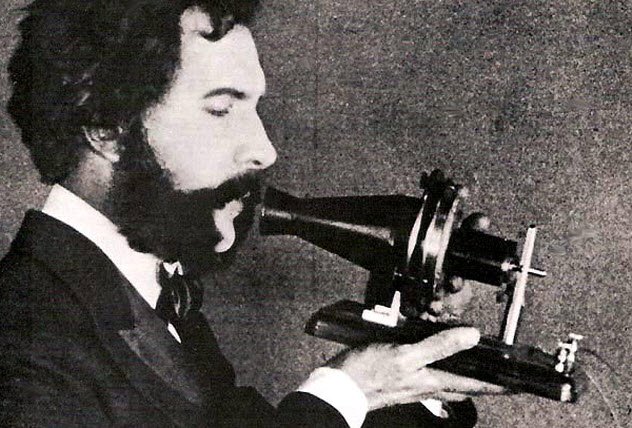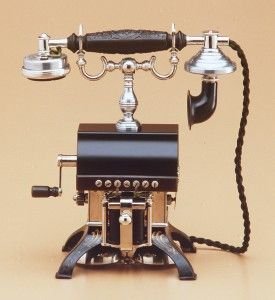BLOCK-CHAINS: A conspiracy writing contest IV : How landline telephones made us cheerful and associated

Cell phones and the web have reformed society, business, and governmental issues, reshaping how we work and play, and how our brains are wired. They have even changed how transformations are made.
For lovers, these advances upgrade opportunity and democratize the stream of data, putting more power in the hands of individuals to produce political change. In the fallout of the Parkland shooting, secondary school understudies have utilized online networking to incite an open civil argument about firearms in the United States. Notwithstanding, depreciators counter that online networking and the web encourage "slactivism": feeble, low-exertion duties that do minimal more than influence clients to feel better.It's hard to assess the present correspondence advancements unless we see how individuals imparted previously. My own particular research glances back at how political activists utilized the telephone in the years prior to the cell phone unrest, utilizing the records of extremist gatherings and meetings to discover how telephone talk formed what they did and how well they did it.

The outcomes higlight how critical telephone calls were in cultivating a feeling of group, closeness and association. This proposes we have lost as much as we have picked up with our cutting edge thingamajigs. Before Facebook, the web and cell phones, political developments utilized conventional advancements to enlist similar individuals, fund-raise, arrange occasions and backer for change.Activist bunches called individuals on the telephone, and additionally printing, mailing and – by the late 1980s – faxing data. In the second 50% of the twentieth century, the telephone was basic to political activism, and it made enduring developments in which individuals felt sincerely reinforced.
The telephone was significant for sharing data rapidly. In the US in the 1960s, when most Americans had phones, the social equality development depended intensely on the phone. A large number of members in the Montgomery transport blacklist of the mid-1950s, for instance, discovered ride shares by utilizing telephone trees. Telephone trees, still being used today, depend on arrangements of individuals who call other individuals: ten individuals each call ten individuals, who then each call ten individuals. Before email, the telephone tree was one of the snappiest and most proficient approaches to disperse data. An efficient tree could rapidly trigger a large number of telephone calls to chose authorities or turn a great many individuals out for shows.

In 1961, Wide Area Telephone Service (WATS) lines were presented, permitting boundless long-remove requires a settled expense. They spared the lives of a few activists by giving grassroots specialists who couldn't bear the cost of costly long-separate calls an approach to call central station to report hazardous situations.By the 1980s, 1-800 calling cards had turned out to be normal. Activists could call anybody from any telephone while leaving the charges to be paid by central command. The quantity of calls made by extremist gatherings detonated. As new developments for ecological security, atomic demilitarization, woman's rights, Chicano rights, Native American rights, gay rights, and preservationist causes, for example, school supplication accumulated steam in the 1980s, the landline telephone remained central.In 1986 Americans set 1.97 billion calls per day – eight requires each lady, man and tyke. They were having around seven fold the number of phone discussions as they had in 1950, and the number was all the while rising.
Those calls were about substantially more than sharing data. Approaching a landline telephone was a work serious type of correspondence, yet it gave prompt individual contact, an open door for authentic trade, and an enthusiastic profundity that composed correspondence lacked.Calls could weave far-flung individuals into profoundly felt groups on the grounds that the telephone transmits the limits of the human voice. The voice is one of our most intense instruments, composed to impart as well as to fabricate closeness. Our voices pass on feeling so adequately that we can distinguish feelings in discourse notwithstanding when the words themselves are suppressed by dividers. The voice demonstrates whether you are true – or whether you are smashed.

The forces of the human voice help to clarify why chatting on the telephone can encourage sentiments of association. Research on the phone in the 1980s demonstrated that a call influenced individuals to feel needed, required, included, and included. This is the reason a current Harvard Business Review examine found that eye to eye demands were 34 times more fruitful than emails.Critics of advanced media say that it erodes human connections. The age that has experienced childhood with advanced mobile phones, which have moved toward becoming gadgets for maintaining a strategic distance from talk, need sympathy and battle to shape companionships in view of trust, as per one investigation.
In online groups, individuals incline toward narcissism and frequently drastically neglect to think about the sentiments of others. Wael Ghonim, an Egyptian whose mysterious Facebook page in 2011 toppled a tyranny, inferred that web-based social networking encouraged "the spread of deception, bits of gossip, resound chambers, and detest discourse. The earth was absolutely poisonous." Empathy vanished, he says.Landline calls ingrained positive feelings: sentiments of association, pride, appreciation, a feeling of height and bliss.
Clinicians disclose to us that whether we are outgoing individuals or self observers, we require human contact and feel more invigorated subsequent to associating with other individuals. Telephone calls made those associations. They made individuals more hopeful and strong and widened their attitudes. For activists, talking uncovered associations they would some way or another have missed, and developed their own sense of duty regarding the reason and to one another.The landline telephone, obviously, was not an impeccable medium – static, missed calls, occupied signs, dropped associations, trick calls and telephone dangers ensured dissatisfaction. You can bond via telephone, yet you can likewise contend.
Be that as it may, the ascent of advanced mobile phones – which Americans check 8 billion times each day – has not implied that we convey better. More correspondence can imply that we hear each different less. Among American twenty to thirty year olds, the quantity of voice calls they make is falling as messaging takes off. What's more, that implies we might lose an intense piece of what interfaces us to each other.
creative things
@sarfrazad thanks
Awesome!